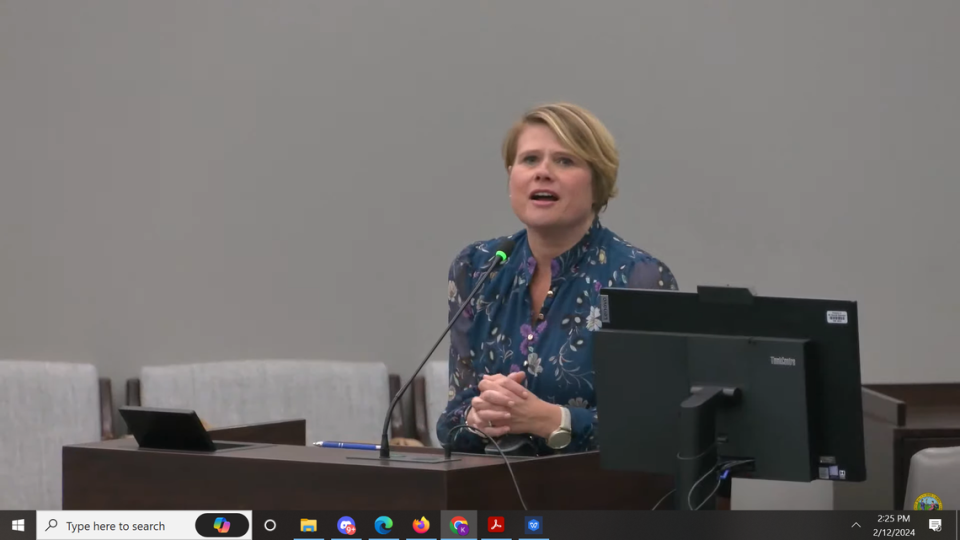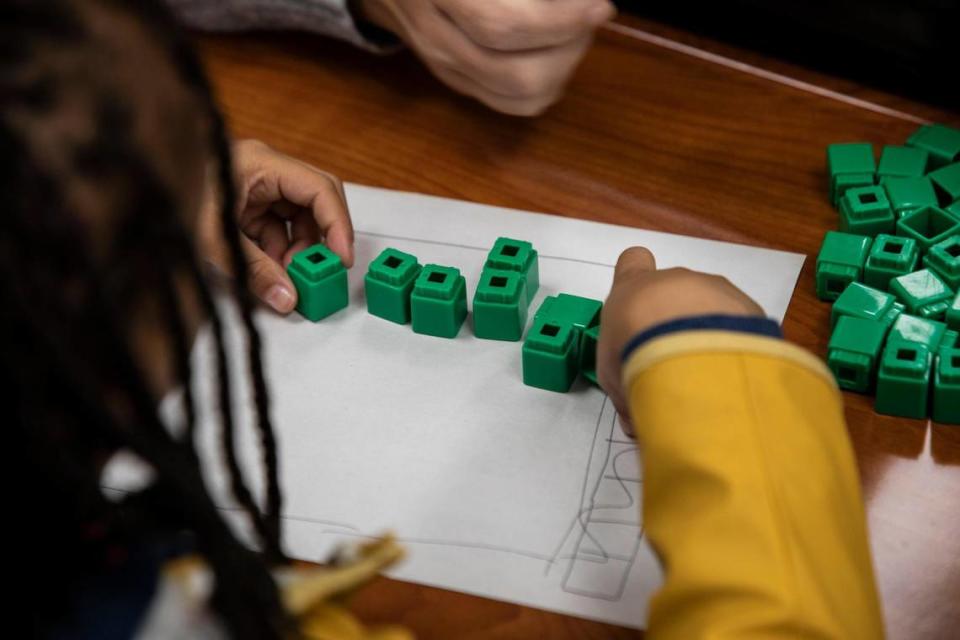Is it time for NC to approve ‘sweeping reform’ for how math is taught in schools?
State Superintendent Catherine Truitt wants elementary and middle schools to provide students with at least 60 minutes a day of math instruction to boost their math skills.
Truitt presented to a state legislative committee on Monday her “comprehensive math reform proposal” to get students ready to take the Math 1 course. The plan includes 60 minutes of daily K-8 math instruction, requiring schools to notify parents if their children are having math difficulties and changes in the way programs teach aspiring math teachers.
Some parts of the package will require legislative approval.
“We will need to legislate some of these requirements because when we’re hurting students we need to change the law,” Truitt, a Republican, told the state House Committee of Education Reform.

Legislation will be forthcoming during this year’s short session, according to Rep. John Torbett, a Gaston County Republican and committee co-chair.
‘Sweeping reform’ needed
Math and reading scores dropped sharply statewide and nationally during the pandemic.
“No one did well during the pandemic, particularly in mathematics,” said Deputy State Superintendent Michael Maher. “Now we’re at the point where we’re starting to claw back some of those losses that occurred as a result of the pandemic.”
North Carolina is seeing more recovery in reading than in math, which Truitt credits to the phonics-based “science of reading” training for all elementary school teachers. The state required programs that train teachers to teach the science of reading.
“We now have to have the same kind of sweeping reform for math,” Truitt told the committee.
The goal is to get students ready for Math 1, which students take in eighth grade or high school. Math 1 is considered a gateway course for post-secondary success.
Sixty minutes a day of math
Maher said the state doesn’t currently tell elementary and middle schools how much time to spend daily on math instruction. He added that offering 60 minutes a day “is a pretty big lift.”
But that hour a day on grade-level math is needed, Maher said. And any needed instruction to get students caught up should be in addition to the 60 minutes and come at a different point in the school day.
“Just because I’m deemed not to be on grade level for 4th-grade math that doesn’t mean I don’t know any 4th grade,” Maher said. “That means there are pieces of my 4th-grade math where I’m short and that’s what I remediate.”
Any math strategy that’s primary focused on that remediation will never help students get caught up, Maher said.
Notifying parents of math problems
Another part of the reform proposal is keeping parents regularly informed of their child’s math progress.
The state Department of Public Instruction would help develop policies for how schools notify the parents of K-8 students about any math difficulty they’re experiencing. The notification would be in writing and come no later than 15 days after the difficulty is identified.
The parental notification requirement pleased lawmakers.
“If we get more parents involved, our students are going to be better,” said state Rep. Brian Biggs, a Randolph County Republican and committee co-chair. “Joining the school system with parents and letting them know and have complete transparency, I think that’s great.”

Changing training for math teachers
One of the recurring themes Monday was the concern that teacher education programs don’t provide enough training on math instruction.
Truitt said half the programs for aspiring teachers offer only one method for teaching elementary school math. She said half of the programs that train what used to be called lateral entry teachers don’t have any courses on math instruction.
She said legislative action is needed to change the education requirements because “we cannot have math phobic elementary teachers teaching math class.”
DPI wants more state funding to provide professional development for math teachers, as well as to offer an “early math screener.” The screener would be a way for teachers to test the math skills of younger elementary school students, like they now do for reading.
“We know what the problems are,” Truitt told lawmakers. “We know how to fix them. We will be looking to you all to partner with us in the short session to get this done.”
Keep math standards ‘clean and pure’
The reform proposal comes as DPI will also be working on updated math standards to present to the State Board of Education in summer 2025.
Torbett, the lawmaker, said he hopes that the new math standards will be kept “both clear and pure away from the social ills of our time.”
His comments come after the state’s 2012 adoption of controversial Common Core math standards — since revised — and the debate over whether new social studies standards are too “divisive.”
“I think no matter where you go on this globe, math and science stay the same,” Torbett said. “Nothing changes. Two plus two is four both here as well as in other parts of the globe.”

